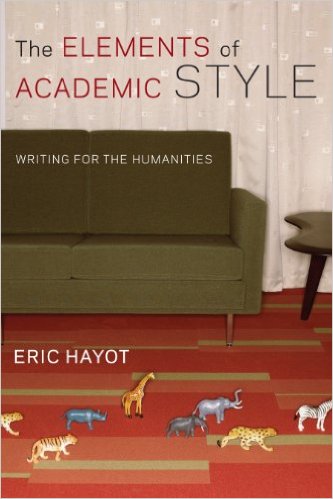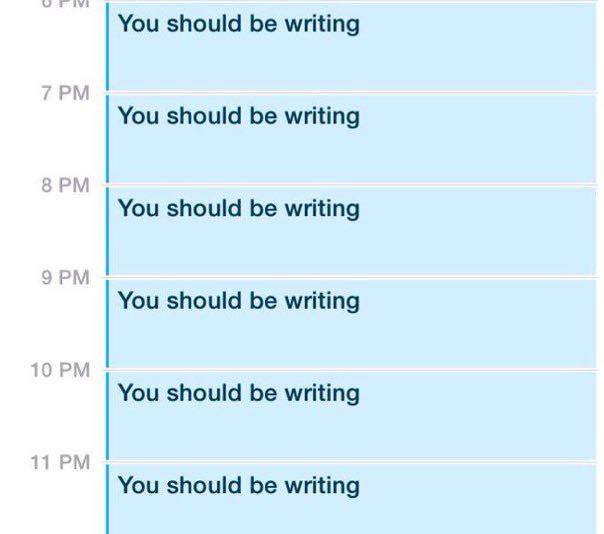Here at WAC we focus a lot on developing our students’ writing. We offer workshops on scaffolding, assignment design, and other topics to help your facilitate their writing. However, the beginning of the spring semester seems like it might be a good moment to focus on our own writing for a moment, both for its own sake, but also for what this might remind us about teaching.
One of the aspects we find most compelling about WAC is the way it encourages us, as educators, to think about writing holistically. At its core, WAC is founded on the principle that writing is not a separate activity students should tag on at the end of the semester (in the form of a term paper, etc) in order to demonstrate what they’ve learned in the course, it is rather, a deeply integral part of how they learn. We might even say, following the philosophy of WAC, that writing is not the destination of knowledge, it’s a key mode of transportation.
And yet, writing is humbling. It’s daunting and difficult enough that even the most seasoned, successful academic can get tripped up on this point and caught in the trap of waiting to figure out exactly what they want to say, before daring to actually put words down on paper. The fact that it is so challenging, and that for many it never really looses this difficulty no matter how many books they’ve published, is something that is actually profoundly democratic about writing. It’s a challenge for us all, it may become easier, but it never stops being hard.
Eric Hayot in his charming book The Elements of Academic Style (2014) makes a particularly convincing case that this is precisely why the most important thing we can do as academics and intellectuals is to keep writing everyday. At WAC we think of this as putting your money where your mouth is, or similar to the way airlines tell you, “in case of emergency, put your air mask on first so you can help others”: Write first!
 Here I’ll point to five of Hayton’s “Eight Strategies for Getting Writing Done” that I think offer particularly helpful reminders for how to stay committed to a daily writing practice even while we confront the myriad challenges of life as a professor. These are:
Here I’ll point to five of Hayton’s “Eight Strategies for Getting Writing Done” that I think offer particularly helpful reminders for how to stay committed to a daily writing practice even while we confront the myriad challenges of life as a professor. These are:
1. Write daily
Hayot recommends that even while teaching, it is particularly important to develop a habit of writing each and every morning for at least 30 minutes. This habbit can take on average 66 days to build!
“Part of building this habit involves speaking about it to others. Narrating your process (I do X for Y minutes a day; I do X for Z minutes during breaks; then I start again) by sharing it with friends help to externalize it, and makes it something that exists outside your own drive and desire.” (19)
2. Make small goals and meet them.
“Making and meeting small goals also determines the kind of relationship you have with yourself. I don’t want to live in a world in which some part of me regularly punishes another part of me for not behaving well, in which I simultaneously occupy the roles of Marine drill sergeant and recruit (“Get up maggot!! If you’re not puking, you’re not working!!”). I find it more helpful (and this is really true) to imagine that part of me that knuckles down is working on behalf of the part of me that would refer to avoid the writing scene entirely, and I do my best to be grateful for all the things that first part of me has helped the complete entity known as “Eric Hayot” accomplish.”… Knowing what I am and am not capable of helps me set goals that I can reach, and creates a pattern of self-motivation and self reward that keeps me happy.” (23-24)
3. When you’re stuck, keep writing.
I recently spoke with a very well respected, octogenarian scholar about having difficulty figuring out my dissertation. She laughed heartily and said, “are you kidding me? I still have many days where all I manage to write is ‘I have no idea what I’m doing! What was I thinking? This project is a terrible idea’ for a whole paragraph or two. But then often, I’ll look up and see the paragraph above it that I was working on the day before and I’ll get distracted by the questions involved in that and actually get interested in the subject again.
4. Avoid virtuous procrastination.
As professors we have a vast litany of virtuous procrastination available to us, that can expand to take up almost the entire day if we allow it to. Teaching in particular is one which Hayot points to, as is housework.

“As with most psychological structures, patterns of procrastination or impatience can be quite difficult to catch in the process. But your goal need not be never to procrastinate. Instead, it should be to get slowly better at recognizing the patterns of your own virtuous deferrals and to catch them within days or a week instead of letting them stop you up for months. Today, a decade and more since my graduation, I still procrastinate, usually by reading too much or by letting administrative work use up my writing days. The difference between now and then is that I catch myself sooner and faster, and have developed habits that allow me to quickly return to positive, productive writing practices. Among the most important of these is regular conversation with friends about how my writing is going. Lies you use to protect yourself from fear ring falser, and louder when you tell them to someone else.” (pg 29-30)
5. Make fear an ally.
This idea is another examples of what I think makes Hayot’s advice particularly wise and also congruent with a WAC approach.
Similar to his approach to procrastination, Hayot argues that fear, can’t be, and even shouldn’t be eliminated entirely but rather harnessed to more productive ends.
“One way to manage fear is to use it to recognize opportunities within the framework of your argument or your prose. Another is to let it protect you from complacency. On the first count, you must move from a general fear of writing to a specific fear located int eh piece you’re currently working on. If you are stuck, ask: what am I most afraid of here? What scares me the most about this paragraph, this transition…or this essay? Free write on the question for a few minutes. Then, instead of thinking of the fear as an obstacle to be overcome, begin imagining it as the solution to an intellectual problem” (30-31)







